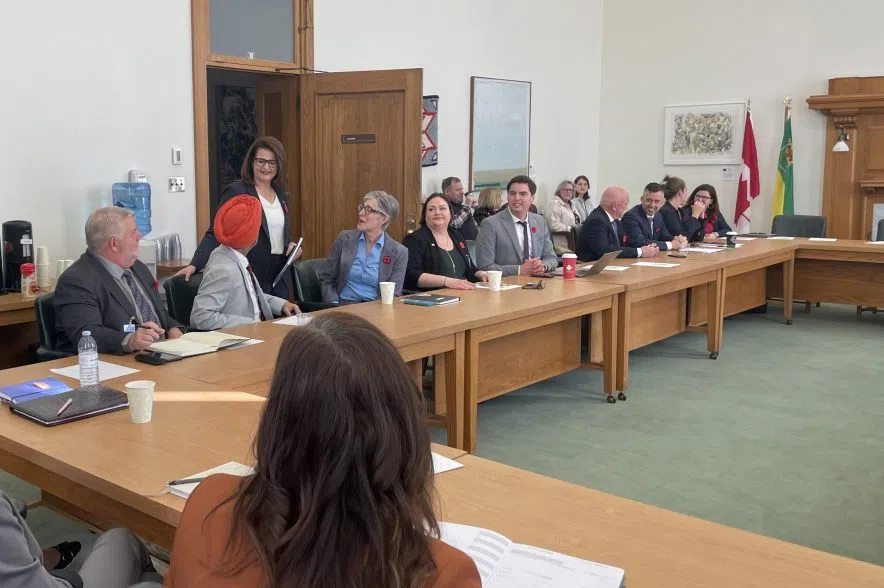There were 14 new faces at the table for the Saskatchewan NDP’s first in-person caucus meeting since the provincial election on Friday.
Leader Carla Beck greeted the 27 elected NDP MLAs at the Legislative Building — the most seats the NDP has had since the Sask. Party first gained power in 2007.
Read more:
- LISTEN: NDP Leader Carla Beck opens up after election
- SASK VOTES: Moe secures majority Sask. Party win while NDP sweeps cities
“What a privilege it is to be chosen by your neighbours to represent them,” she said. “This is a team that all has that feeling.”
Beck still remembers the excitement she first felt when she was first elected, and said many of the newly elected MLAs are having similar feelings.
“This is a team that I would pick, to be able to pick up really quickly on the job in front of them,” she said. “As I said, they’re eager to hit the ground running.”
Beck said the NDP is focusing on issues that people are concerned about, which are health care and the cost of living.
Change room policies in schools
On Thursday, Premier Scott Moe took a step back from a possible change room ban in schools, saying he “misspoke.”
On the campaign trail, Moe had said that his first order of business if elected as government would be banning students from using a change room that wasn’t of their “biological gender.”
Beck said her party’s policies are firmly focused on issues that matter most to Saskatchewan people.
“I’ll let the Premier speak to his change of heart,” she said.
“But this is obviously someone who says one thing during an election and changes his mind and says something afterwards, and I think that’s telling.”
When asked if a change room policy is needed within the school system, Beck stopped short of answering yes or no and instead pointed to larger issues in schools the government should be focusing on.
“I think any government should be focused on the issues that are most important,” she said. “There are a lot of issues in education alone that need to be addressed.”
Beck pointed to issues like underfunding and complex needs in the classroom as bigger priorities.
Read more:











